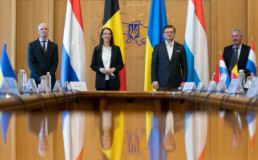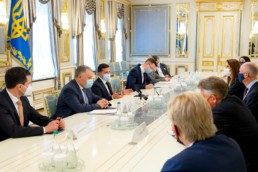On Thursday 6 and Friday 7 May, Deputy Prime Minister and Minister for Foreign Affairs Sophie Wilmès visited Ukraine where she led a delegation from the Benelux countries, of which Belgium currently holds the Presidency. She was accompanied by the Ministers for Foreign Affairs, Mr Stef Blok (Netherlands) and Mr Jean Asselborn (Luxembourg).
The delegation arrived in Kharkiv on Thursday at noon (local time) where they were welcomed by Mr Vasyl Bodnar, Deputy Foreign Minister of Ukraine. The Ministers were then transferred by helicopter to the city of Severodonetsk, where they were briefed on the civilian and military situation in the Donbass region by the local commander of the Ukrainian Army Staff, in the presence of the Governor of Luhansk. They then went to the Shchastya contact point to see for themselves how one of the crossing points on the contact line works. “As ministers, we read a lot of reports and notes, but nothing beats a field visit to get a better idea of the situation. The Benelux has again expressed its full support and solidarity with Ukraine, especially when it comes to its independence and territorial integrity. In any case, no one has any interest in an escalation in the region,” said Deputy Prime Minister Sophie Wilmès.
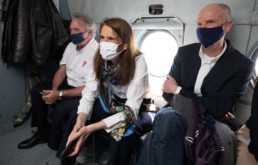
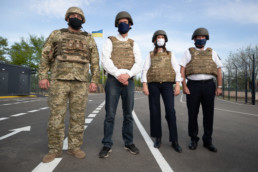
On Thursday evening, the three Ministers met with prominent representatives of civil society, with whom they discussed in detail the major challenges Ukraine and its internal policy are facing, particularly in terms of reforms, the rule of law, the fight against corruption and the protection of minorities.
On Friday 7 May, the Benelux Ministers started the day by laying a wreath at the foot of the monument in honour of the “Heavenly 100 Heroes”, victims of the Euromaidan protests (2013-2014) and all the victims since then.
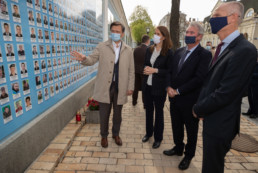
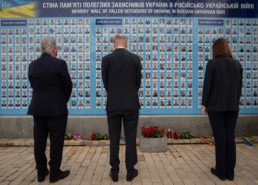
Afterwards, they participated in two meetings with the Ukrainian Minister of Foreign Affairs, Mr Dmytro Kuleba, and the President of Ukraine, Mr Volodymyr Zelensky. The situation in the Donbass and the case of Crimea were discussed. Other topics included Ukraine’s relations with the European Union and NATO, institutional reforms and respect for human rights.
